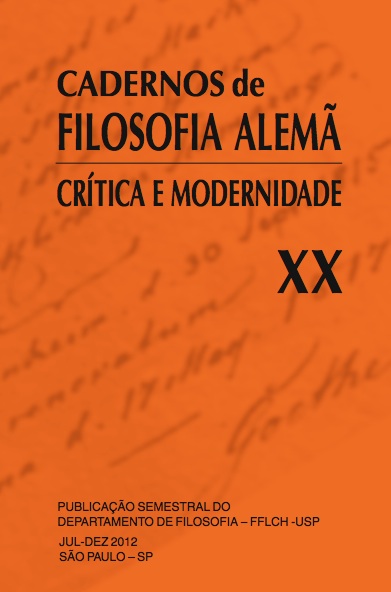A new anthropology. Critical unity and interdisciplinary arrangement in the Dialectic of Enlightenment
DOI:
https://doi.org/10.11606/issn.2318-9800.v0i20p101-122Keywords:
Critical Theory, Dialect of Enlightenment, interdisciplinarity, critique, Freud, anthropologyAbstract
Among many other elements, the diagnosis of time underlying the Dialectic of Enlightenment pointed to the lost of centrality of political economy in the interdisciplinary arrangement of Critical Theory, implying also the need for a new basis for critique itself. Under this aspect the main consequence was the emergence of a peculiar anthropology – understood in terms of a transformation of psychoanalytical elements into a social theory – that was put on the basis of a new conception of interdisciplinarity. In a single paper it is certainly not possible to reconstruct this new critical model even in its most general features, but it is at least possible to advance some of its main elements and stress their relation both to the new interdisciplinary arrangement and to the new conception of critique.Downloads
Downloads
Published
Issue
Section
License
Information and conceptions on the texts are complete responsibility of the authors.
All the articles submitted before July 5th 2018 and those published after July 2021 are licensed under a CC BY-NC-ND license – except those published between the aforementioned dates, which are under the CC BY-NC-SA license. The permission for the translation of the material published under the license CC BY-NC-ND by third parts can be obtained with the consent of the author.
Open access policies - Diadorim
Rules applied before July 5th 2018:
Presenting a submission to our Editorial Board implies granting priority of publication for “Cadernos de filosofia alemã”, as well as transferring the copyright of texts (once published), which will be reproduced only with the manifest authorization of the editors. Authors keep the right to reuse the texts published in future editions of their work, without paying any fees to "Cadernos”. We will not grant the permission to re-edit or translate the texts for third parts without agreement of the author.


